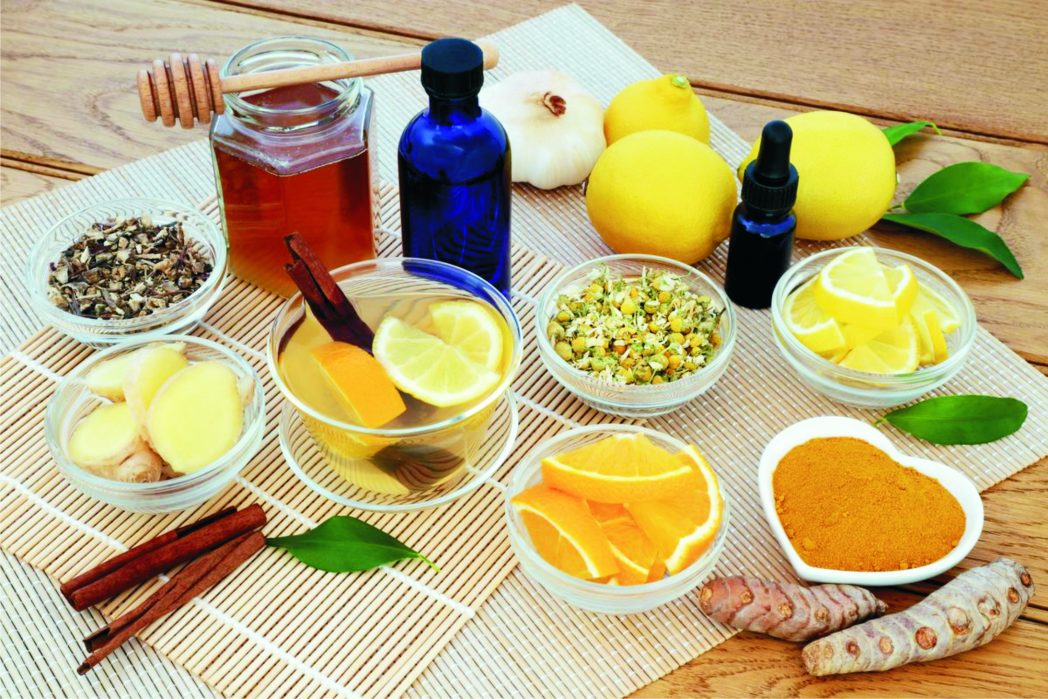Health
Coronavirus: Natural Methods To Protect Oneself

Coronavirus disease (COVID-19) which started late 2019 in Wuhan Province in China is ravaging the world at a speed that the World Health Organisation (WHO) was compelled to declare it a pandemic.
As at the last count and according to online source, Worldometer, deaths from the virus is now 41,249. After China recorded over 3,305deaths from the disease, Italy is the highest hit with 12,428 as at Monday. So far not less 179 countries are being affected, including Nigeria with one incident of an Italian who, according to the federal authorities, is fast recovering.
In order to check the spread of the virus, government both at the federal and state levels have intensified public enlightenment. The disease is characterised by mild symptoms including a runny nose, sore throat, cough, and fever. Nonetheless, it can be more severe for some people and can lead to pneumonia or breathing difficulties.
More rarely, the disease can be fatal. Older people, and people with other medical conditions (such as asthma, diabetes, or heart disease), may be more vulnerable to becoming severely ill, kidney failure and even death.
Standard recommendations to prevent infection spread include regular hand washing, covering of mouth and nose when coughing and sneezing, thoroughly cooking meat and eggs. Avoiding close contact with anyone showing symptoms of respiratory illness such as coughing and sneezing.
While scientific research has in the last one month intensified to find cure, there are natural remedies that can help one to tackle the symptoms, as one is advised to call hotlines-08056109538, 08031888093 or report to a nearby hospital or health centre in the case of infection. Below are some natural tips to tackle flu and cold infections:
1. Hydration
Number one recommendation for recovering quickly from a cold or flu virus is staying hydrated.
When you’re hydrated, your body has a natural ability to flush germs out of your system. But talk to your doctor about your specific needs. Some people, such as those with congestive heart failure, should drink less water.
2. Vitamin C
While Vitamin C hasn’t been proven to prevent cold symptoms, some studies have indicated it can shorten the lifespan of a cold. Plus, it boosts your overall health, including your immune system.
Getting the vitamin through your diet is recommended. The fresher the food, the better. Think oranges, rather than orange juice or supplements. Overdoing it on vitamin C supplements (not dietary vitamin C) can lead to upset stomach and kidney stones.
3. Sleep
It is so important to get plenty of rest during cold and flu season.
Sleep helps your immune system function at its best to ward off nasty viruses and bacteria.
4. Honey and tea
Honey has natural antiviral and antimicrobial properties.”
Add the natural sweetener (opt for a local variety when possible) to a cup of ginger or cinnamon tea to relieve a scratchy throat and stay hydrated.
5. Chicken soup
Sometimes mom really does know best! Hot liquids, such as soup, help reduce mucus buildup and keep you hydrated. A study from the University of Nebraska Medical Center found chicken soup has anti-inflammatory properties, which help reduce a cold’s unpleasant side effects.
6. Aromatherapy
Break up mucus by rubbing a bit of camphor or menthol salve around – not in! – your nose. You can also reduce congestion by breathing in aromatherapy oils, such as peppermint and eucalyptus.
7. A steamy shower
A steamy shower or sauna is a great decongestant, says Austin. One caveat: If you are dizzy or weak from the flu, sit in a chair in your bathroom while you run a hot shower.
8. Gargling warm salt water
Dissolve 1/2 a teaspoon of salt in a cup of warm water, then gargle to relieve a sore throat.
9. Sleep with an extra pillow.
Health
‘How Micro RNA Research Won Nobel Prize’
Two United States scientists who unraveled the human micro RNA have won the Nobel Prize in Physiology or Medicine 2024.
Victor Ambros and Gary Ruvkun won the coveted prize for their work on microRNA as their discoveries help explain how complex life emerged on earth and how the human body is made up of a wide variety of different tissues.
MicroRNAs influence how genes – the instructions for life – are controlled inside organisms, including humans.
Every cell in the human body contains the same raw genetic information, locked in our DNA.
However, despite starting with the identical genetic information, the cells of the human body are wildly different in form and function.
The electrical impulses of nerve cells are distinct from the rhythmic beating of heart cells. The metabolic powerhouse that is a liver cell is distinct to a kidney cell, which filters urea out of the blood.
The light-sensing abilities of cells in the retina are different in skillset to white blood cells that produce antibodies to fight infection.
So much variety can arise from the same starting material because of gene expression.
The US scientists were the first to discover microRNAs and how they exerted control on how genes are expressed differently in different tissues.
The medicine and physiology prize winners are selected by the Nobel Assembly of Sweden’s Karolinska Institute.
They said: “Their groundbreaking discovery revealed a completely new principle of gene regulation that turned out to be essential for multicellular organisms, including humans.
“It is now known that the human genome codes for over 1,000 microRNAs.”
Health
WHO Begins Regulation On Antibiotic Waste
The World Health Organisation (WHO) has begun acting to curb effects of antibiotic pollution.
The new guidance on wastewater and solid waste management for antibiotic manufacturing sheds light on this important but neglected challenge ahead of the United Nations General Assembly (UNGA) High-Level Meeting on antimicrobial resistance (AMR) taking place on 26 September 2024.
The emergence and spread of AMR caused by antibiotic pollution could undermine the effectiveness of antibiotics globally, including the medicines produced at the manufacturing sites responsible for the pollution.
Despite high antibiotic pollution levels being widely documented, the issue is largely unregulated and quality assurance criteria typically do not address environmental emissions. In addition, once distributed, there is a lack of information provided to consumers on how to dispose of antibiotics when they are not used, for example, when they expire or when a course is finished but there is still antibiotic left over.
“Pharmaceutical waste from antibiotic manufacturing can facilitate the emergence of new drug-resistant bacteria, which can spread globally and threaten our health. Controlling pollution from antibiotic production contributes to keeping these life-saving medicines effective for everyone,” said Dr Yukiko Nakatani, WHO Assistant Director-General for AMR ad interim.
Globally, there is a lack of accessible information on the environmental damage caused by manufacturing of medicines.
“The guidance provides an independent and impartial scientific basis for regulators, procurers, inspectors, and industry themselves to include robust antibiotic pollution control in their standards,” said Dr Maria Neira, Director, Department of Environment, Climate Change and Health, WHO. “Critically, the strong focus on transparency will equip buyers, investors and the general public to make decisions that account for manufacturers’ efforts to control antibiotic pollution.”
Health
Kebbi Harmonises Doctors’ Salaries To Curb Brain Drain
In a concerted effort to curb brain drain, the Kebbi State Government has harmonised medical doctors’ salaries to be at par with their colleagues in the federal government’s tertiary health facilities.
Kebbi State Commissioner for Health, Musa Inusa-Isma’il, disclosed this at the handing over of ambulances to the state-owned health facilities at the Ministry of Health in Birnin Kebbi yesterday.
Inusa Isma’il, according to a statement by Ahmed Idris, the Chief Press Secretary to the governor, said the essence of the harmonisation was to retain the existing medical doctors and attract more to the services of the state.
According to him, the doctors across the state had already started enjoying the new salaries from August 2024.
He said the release of the vehicles was in fulfilment of Governor Nasir Idris’ promise to uplift health care services in the state.
“His Excellency said I should inform you, the beneficiaries of this gesture, that the vehicle should be strictly used for the intended purpose. It should not be used for anything else.
“If there is no referral case, each of the vehicles must be parked at the hospital by 6 pm. The governor said you should warn your drivers against reckless driving as well as violating the instructions.
“We should also do everything possible to reciprocate the gesture by working according to the terms and conditions attached,” he advised.
The benefiting health facilities included Sir Yahaya Memorial Hospital, Birnin Kebbi; State Teaching Hospital, Kalgo; General Hospital, Argungu; General Hospital, Yauri; General Hospital, Zuru; and General Hospital, Bunza.
In his speech, the permanent secretary of the ministry, Dr Shehu Koko, recalled that the ambulances were handed over to the ministry last Friday by the governor for the onward handover to the benefiting hospitals.
He observed that the ambulances would go a long way in improving the referral system in the state, adding that delays in reaching the secondary and tertiary facilities would be eliminated.
The permanent secretary attributed the high rate of maternal mortality in the country to delays in getting to the health facilities for proper medical care.
“We believe with the provision of these ambulances, part of the gaps we have in our referral system will be addressed, whereby patients who require secondary healthcare could be easily transported to secondary and tertiary health centres, where they can get such help,” he said.
In a goodwill message, Commissioner for Information and Culture Alhaji Yakubu Ahmed expressed gratitude to the governor for the support he has given to the ministry to excel.
While advising the beneficiaries to use the vehicles judiciously, the commissioner advised that services and maintenance of the vehicles must be prompt to derive the maximum benefits from the vehicles.
The commissioner also highlighted some achievements recorded by the government in the last year, including beautification of the state capital, completion of a multimillion-naira ultramodern state secretariat, road construction, construction and renovation of classrooms and upgrading of some health facilities, among others.
-
Business5 days ago
NCS Hands Over Intercepted Arms To NCCSALW
-
Politics5 days ago
PDP, APC Trade Blame Over Killings In Osun Local Councils’ Crisis
-
Business5 days ago
Maritime Journalists Confer Iconic Award On Customs CG
-
Politics5 days ago
Lagos Assembly Commotion: Lawmakers Reject Obasa’s Return, Pass Confidence Vote On Meranda
-
Business5 days ago
Shipowners Seek NIMASA Officials’ Prosecution Over N50bn Floating Dock Scandal
-
Education5 days ago
Assessment of Physico-Chemical Conditions and Plankton Diversity of Agulu Lake in Anambra State.
-
Business5 days ago
Coy To Deliver $30m Lagos Free Zone Infrastructure Facility In Q2
-

 Featured5 days ago
Featured5 days agoWe Support Rivers Workers To Feel Valued, Productive, Says Fubara …Inaugurates Bayelsa Labour House

